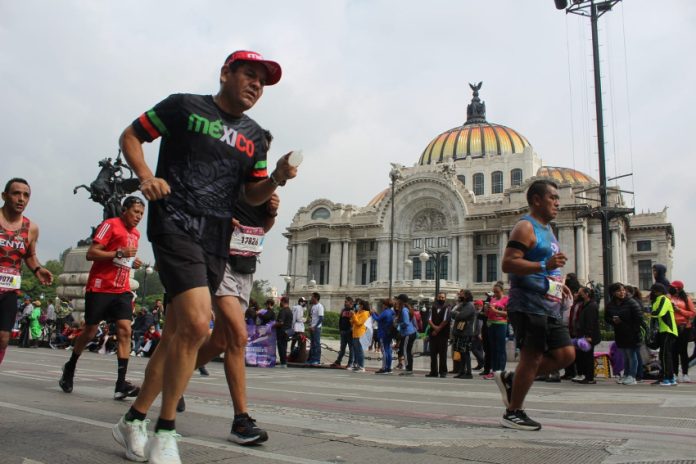The Mexico City Marathon will celebrate its 40th anniversary on Aug.27, 2023, and registrations for the event opened Thursday.
Organizers explained that registration is opening early to allow participants enough time to train and be able to complete the 42-km race, with the goal of increasing the number of finishers. The event had over 19,000 participants in 2022 and more than 20,000 are anticipated for next year.
This year the Ethiopian runner Amane Beriso Shankule won the women’s race with a time of two hours and 25 minutes and the Kenyan runner Edwin Kiprop Kiptoo won the men’s with a time of two hours and 10 minutes. The maximum time allowed to finish the race is six hours.
The cost of registration before Dec. 31, 2022, will be 650 pesos (US $33), and starting Jan. 1, 2023, will go up to 700 pesos (US $34). Foreign runners will have to pay US $100.
Registration will close on Wednesday, Aug. 23 and after that, registrations can only be purchased through foundations supporting the marathon at the Expo Marathon.
The Mexico City Marathon is the only race in Latin America to be listed as “elite label” by World Athletics
With reports from Milenio
